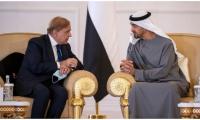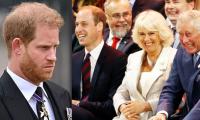First of all, I would like to thank my readers for their positive feedback on my last two articles. One reader has asked about the guidelines that ancient philosopher Chanakya has provided for employees. I believe that Chanakya, in his books ‘Arthashastra’ and ‘Chanakya Neeti’, had described the principles that everyone should follow to achieve success.
According to Chanakya, like a businessman whose strength is in his money or a country whose strength is associated with its armed forces, the strength of a professional lies in his/her qualifications, efficiency and loyalty. If an employee sets his/her professional life on these principles, he/she will surely become successful.
I believe that the government of Pakistan must establish a university named after Chanakya. A memorial monument must be built on the site in Taxila where he once used to teach his students thousands of years ago.
This goodwill gesture will not only project a positive, education-friendly image of Pakistan, but will also become a source of attraction for all of Chanakya’s fans throughout the world who want to visit his birthplace to pay tribute to him and conduct research or make a documentary on the ancient philosopher.
This step will further promote faith tourism – the topic of one of my articles that received an overwhelming response. In this article, I had highlighted that Pakistan holds significant importance for the followers of four major world religions: Hinduism, Islam, Sikhism and Buddhism.
In this regard, one of my readers commented that many historical churches were also built during British rule in India. Saint Patrick’s Cathedral was founded in Karachi around 12 years before the War of Independence in 1857. Other prominent historical churches included St Joseph’s Church Lahore, St Andrew’s Church Lahore, Saint Mary’s Cathedral Church Multan, the Holy Trinity Church Sialkot, and St John’s Cathedral in Peshawar. These historical churches have the potential to attract Christians belonging to the UK and other parts of Europe.
During the recent visit of a delegation of the European Parliament to Islamabad, someone told me about the European Network for Religious Places of Worship. The EU-funded organisation aims to connect various likeminded institutions, government departments, NGOs, charities, and religious and university departments to protect religious heritage across Europe. Furthermore, it is determined to convince policymakers about the socioeconomic importance of sacred sites.
Despite having so many historic religious sites, Pakistan lags behind in terms of faith tourism. The Evacuee Trust Property Board (ETPB), which was established to look after sacred sites and property belonging to non-Muslims, urgently needs to be restructured to play an effective and efficient role. The Supreme Court has already ordered that the chief of the ETPB should be appointed from a minority community.
The future ETPB chief must be given the task to take solid steps to promote religious tourism. His first step should be to identify all places of worship for minorities across the country and prepare a comprehensive official list. The most sacred places of Hinduism, including the Hanglaj Temple, the Katas Raj Temple, and the Anandpur Temple Teri, are located in Pakistan. Similarly, holy sites associated with Buddha can attract faith tourists from Japan, Sri Lanka, Thailand, Malaysia, and other countries.
The ETPB has to realise that looking after religious site is its primary responsibility. However, the ETPB must also have a concrete faith tourism action plan, with a focus on attracting a maximum number of foreign faith tourists, promoting religious heritage, providing the best facilities to the tourists, and generating revenue.
The ETBP must be authorised to issue visa invitation letters, with the close coordination of the Foreign Office, overseas Pakistani embassies and security institutions, for all those foreign tourists who are interested in visiting religious historic sites in the country.
Our armed forces are playing a pivotal role to ensure peace and combat terrorism. Similarly, the role being played by the Supreme Court has promoted the image of Pakistan as a democratic country where rule of law is given due importance. Now, it is responsibility of the elected government to take the right decisions at right time and appoint the right people in the right places. Such difficult decisions are necessary to move our beloved motherland towards peace and prosperity.
If the ETPB succeeds in defining a comprehensive action plan to promote faith tourism, the day isn’t far when foreign tourists will enjoy the traditional and sincere hospitality of Pakistanis. In this way, the closed doors for Pakistanis to go abroad will once again be opened.
The writer is a member of the NationalAssembly and patron-in-chief of the Pakistan Hindu Council.
Twitter: @RVankwani







